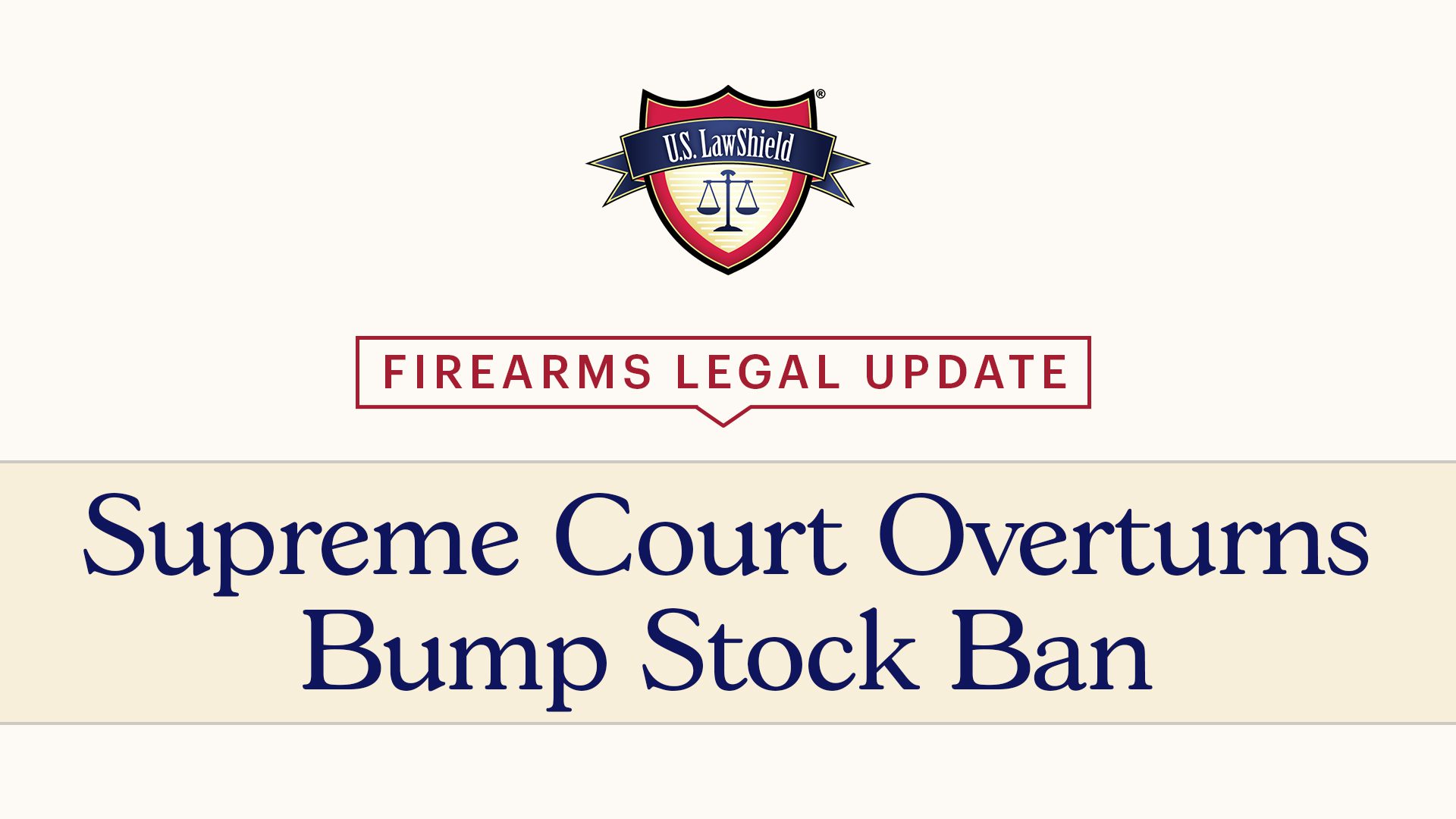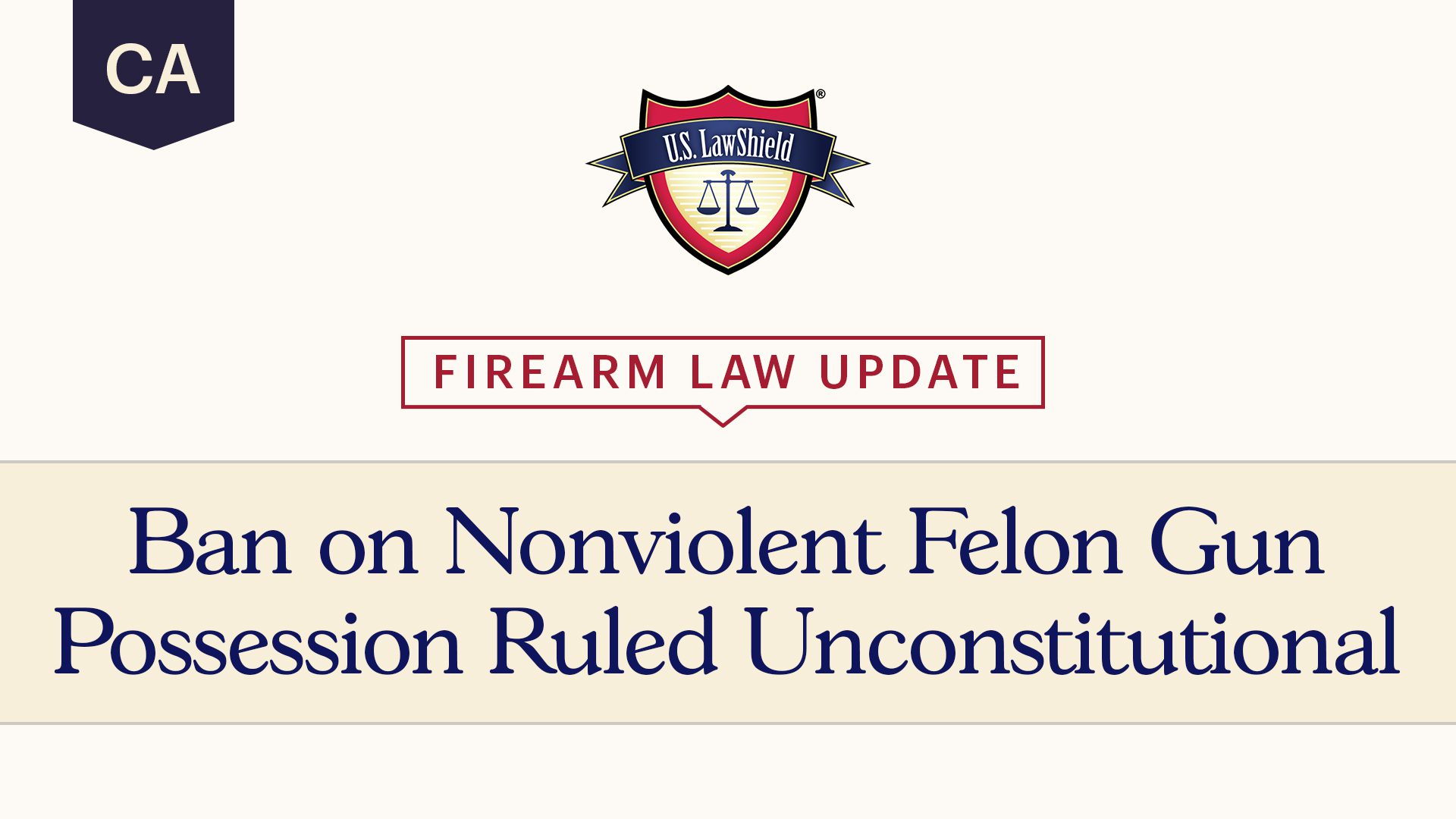
You’ve survived the scariest moment of your life: successfully defending yourself against an attacker. You’ve also made it through an exhaustive criminal case, where you were exonerated after asserting that you acted in justified self-defense. It appears your life can return to normal.
Not So Fast…
Depending on your situation, you could be facing another legal battle in civil court brought by the attacker or their family. Sound impossible? It’s not, and in some states, it’s more likely to happen.
This is yet another reason to cover yourself in the blanket of protection offered by a U.S. LawShield membership.
“People have a very visceral reaction to a bad guy turning around and suing them or the bad guy’s family suing them, but it does occur,” said U.S. LawShield Independent Program Attorney Emily Taylor. “People think it shouldn’t be allowed, especially after they were cleared in criminal court.”
The Paperwork Is Just Beginning
However, America’s justice system allows for anyone to sue anyone at any time—for any reason—even if there is no legal cause of action. All it takes is filing the papers. The person being sued is then served with the lawsuit, and they in turn must answer the charge and respond to discovery requests, which we recommend hiring a lawyer to do.
It’s not a function of the court system to go through every legal filing and void the frivolous ones. That burden falls on the person being sued, who must respond to the lawsuit and bring that fact to the court’s attention with a motion to dismiss or a motion for summary judgement. By that point, the costs are already adding up.
Even in a situation where a criminal trial exonerates the person who defended themselves, that doesn’t necessarily give them relief from a civil suit or civil liability, especially when factoring in where they reside.
“Many states do have protection from civil liability after you were found to have justifiably defended yourself, particularly in your castle,” Taylor said. “Some states even extend that beyond your castle. But on the other side of the spectrum, you have states with no protection at all.
“If you do have to answer the call, in most instances you will need to re-litigate your justified use of force in a civil court. That will include hiring a lawyer, answering discovery, taking depositions, and ultimately going to trial in front of another jury and proving once again that what you did was justified. This will be very expensive, time-consuming, and stressful.
“In most states, the best-case scenario is that you win the civil case after all of this headache and heartache. In some states, you can get an award of costs and attorneys’ fees against the bad guy, but this is unlikely, and it is even more unlikely that you will be able to collect."
What Happens If You Lose?
Conversely, if you lose in civil court, you’ll likely be responsible for medical bills, pain and suffering, lost wages, and any other damage you caused to the bad guy. If the attacker dies and it’s found to be a wrongful death, you’ll again be responsible for any medical bills, funeral costs, plus a the family’s loss of companionship and the loss of financial contributions the attacker might have provided during his life.
“We always urge members to remember that deadly force in self-defense is a last resort to be used only in a true case of life or death,” Taylor said. “Let’s say you do everything right, it’s still a life-altering event. Even at the civil level, it can be very disruptive.”
The good news is that U.S. LawShield members don't have to go through this alone. From the moment you are forced to defend yourself until your last day of court, an Independent Program Attorney will be with you every step of the way.
Peace of mind is just a click away. Activate your U.S. LawShield membership today!
The information provided in this publication is intended to provide general information to individuals and is not legal advice. The information included in this publication may not be quoted or referred to in any other publication without the prior written consent of U.S. LawShield, to be given or withheld at our discretion. The information is not a substitute for, and does not replace the advice or representation of a licensed attorney. We strive to ensure the information included in this publication is accurate and current, however, no claim is made to the accuracy of the information and we are not responsible for any consequences that may result from the use of information in this publication. The use of this publication does not create an attorney-client relationship between U.S. LawShield, any independent program attorney, and any individual.





I wish us law shield offered civil damage coverage.